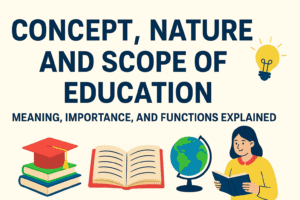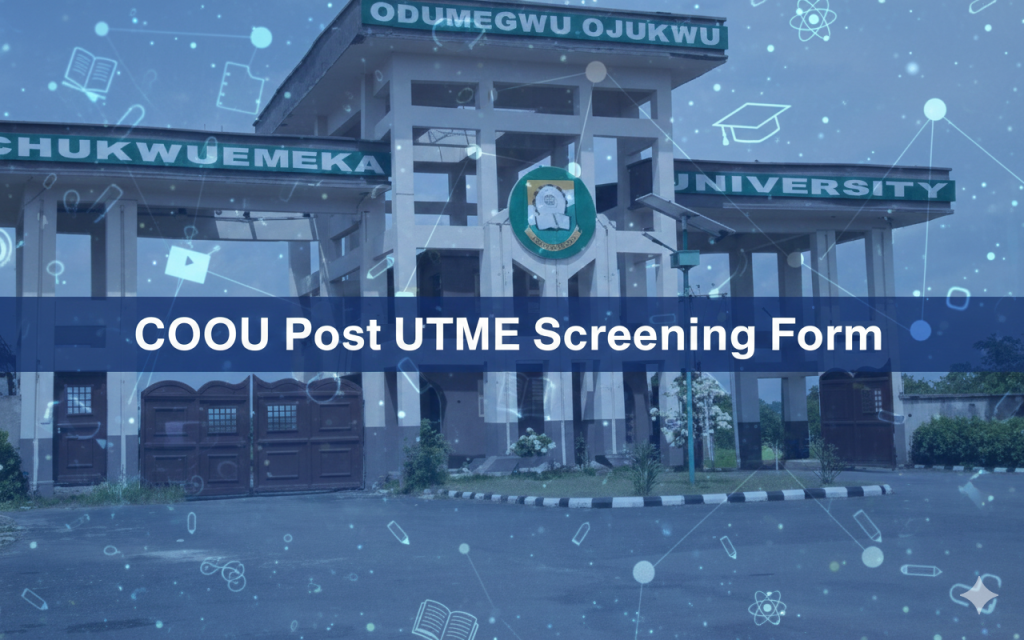
Introduction
Education is one of the most important foundations of human life. It is often described as the key to success, a tool for transformation, and the backbone of national development. Beyond classrooms and textbooks, education is a lifelong process that shapes individuals, cultures, and societies. It is the bridge that connects the past with the future, passing down knowledge, values, and skills from one generation to another while preparing individuals to face new challenges.
In a simple sense, education is the process of learning and acquiring knowledge. But in a broader sense, it is much more than that. It involves the holistic development of a person—intellectually, socially, morally, emotionally, and spiritually. Education does not stop at gaining literacy; rather, it builds character, promotes citizenship, and prepares individuals for meaningful participation in life.
Throughout history, great philosophers and reformers have emphasized the role of education. Plato saw education as the means to achieve the ideal state. Aristotle believed education should help individuals achieve happiness through virtue. John Dewey, a modern philosopher, described education as “the continuous reconstruction of experience.” These definitions highlight that education is both personal (shaping the individual) and social (benefiting the community).
Why the Study of Education Matters
Understanding the concept, nature, and scope of education is not just an academic exercise—it is crucial for teachers, policymakers, parents, and even students themselves. Some key reasons include:
- Clarity of Purpose: It helps us understand what education truly means, beyond exams and certificates.
- Policy and Curriculum Design: Governments and schools require a clear educational philosophy to shape effective learning systems.
- Personal Growth: Students and learners can appreciate education as a tool for self-improvement, not just career advancement.
- Social Progress: With proper educational planning, Societies with well-understood and well-applied educational systems grow in peace, unity, and development.
Education in the Modern Context
In today’s world, education plays an even more critical role. With globalization, technological change, and social diversity, education is no longer limited to reading, writing, and arithmetic. It now includes digital literacy, problem-solving, creativity, critical thinking, and global citizenship. A modern education system must prepare learners to be adaptable, innovative, and morally responsible citizens of the world.
Transition to Next Section
Having introduced the importance of education, we can now move deeper into understanding its essence. To do so, we begin with the concept of education—what it truly means, how it has been defined, and the perspectives from which it can be understood.
Concept of Education
The concept of education is broad and dynamic, extending far beyond the idea of going to school or passing examinations. While many people associate education only with formal classroom learning, its meaning is much deeper. Education is a lifelong process of acquiring knowledge, skills, values, attitudes, and habits that enable individuals to live meaningful lives and contribute positively to society.
The word “education” is derived from two Latin terms:
- Educare, meaning “to bring up” or “to nourish,” emphasizes the nurturing role of education.
- Educere, meaning “to lead out” or “to draw forth,” highlights the process of drawing out the hidden potential within every individual.
Together, these meanings show that education is both about nurturing and guiding learners as well as developing their inherent abilities.
Perspectives on the Concept of Education
- Philosophical Perspective
Philosophers view education as a way of achieving the ideal life. Plato believed that education should train both body and soul for excellence. Aristotle emphasized moral and intellectual virtue as the ultimate aim of education. Modern philosophers like John Dewey saw education as “reconstruction of experience,” meaning that learners grow by interacting with their environment. - Psychological Perspective
From a psychological standpoint, education is the process of developing a child’s innate abilities. It is based on the principle that every individual has potential, and through proper guidance, encouragement, and training, these abilities can be maximized. - Sociological Perspective
Sociologists describe education as a social process through which culture, norms, values, and traditions are transferred from one generation to the next. In this sense, education is not just personal—it ensures the survival and continuity of society. - Practical Perspective
Practically, education is seen as preparation for life and future responsibilities. It equips individuals with literacy, numeracy, critical thinking, problem-solving skills, and moral guidance needed for family life, career, and citizenship.
Definitions of Education by Scholars
To better understand the concept, let’s look at how great thinkers have defined education:
- Plato: “Education is the process of developing in the body and soul all the beauty and all the perfection of which they are capable.”
- John Dewey: “Education is the continuous reconstruction or reorganization of experience which adds to the meaning of experience and increases the ability to direct the course of subsequent experience.”
- Mahatma Gandhi: “By education, I mean an all-round drawing out of the best in child and man—body, mind, and spirit.”
- Dr. S. Radhakrishnan: “Education, to be complete, must be humane; it must include not only the training of the intellect but also the refinement of the heart and the discipline of the spirit.”
These definitions show that education is both intellectual and moral, personal and social, practical and philosophical.
The Aims of Education (Linked to Concept)
The concept of education is closely tied to its aims, which include:
- Intellectual Development – Developing reasoning, memory, and critical thinking.
- Character Formation – Instilling discipline, honesty, and responsibility.
- Social Development – Promoting cooperation, tolerance, and respect for diversity.
- Vocational Preparation – Equipping individuals with practical skills for employment.
- Spiritual Growth – Developing self-awareness, empathy, and higher values.
Summary of Concept
The concept of education is multi-dimensional. It is not simply about acquiring knowledge but about the overall growth of the human personality. It prepares individuals for personal fulfillment, social participation, economic productivity, and global citizenship.
Nature of Education
The nature of education refers to its essential qualities, features, and characteristics that define what education truly is. Understanding the nature of education helps us appreciate that it is not just a one-time event or the completion of formal schooling, but a continuous, dynamic, and holistic process that influences every aspect of human life.
1. Education is a Lifelong Process
Education begins at birth and continues until death. A child learns first at home, then in school, and later from society and personal experiences. Even in old age, people continue to learn through exposure to new technologies, cultures, and life challenges. This shows that education is not limited to the classroom but is an ongoing journey of growth and adaptation.
2. Education is Continuous and Dynamic
Society is constantly changing—new technologies, new ideas, and new ways of life emerge every day. Education evolves alongside these changes. For example, in the past, literacy was mainly about reading and writing; today, digital literacy and global awareness are just as important. This dynamic nature makes education flexible and adaptable to the needs of different generations.
3. Education is Holistic
Education is not confined to intellectual growth alone. It aims at the all-round development of the individual, including:
- Intellectual: Developing knowledge, reasoning, and problem-solving.
- Emotional: Understanding feelings and building resilience.
- Moral and Spiritual: Instilling values such as honesty, kindness, and responsibility.
- Physical: Encouraging health, fitness, and coordination.
This holistic approach ensures that individuals are well-prepared to handle both personal and social challenges.
4. Education is a Social Process
Human beings are social by nature, and education takes place in interaction with others. It is through family, peers, teachers, and the community that individuals learn social norms, values, and cultural practices. This makes education not only a personal pursuit but also a collective responsibility that ensures social cohesion and cultural continuity.
5. Education is Value-Oriented
One of the most important aspects of education is its role in shaping character and values. A truly educated person is not only knowledgeable but also disciplined, ethical, and socially responsible. Values such as tolerance, respect for diversity, empathy, and patriotism are cultivated through education, ensuring that individuals contribute positively to society.
6. Education Exists in Multiple Forms
Education is not restricted to one form. It can be:
- Formal – Structured learning in schools, colleges, and universities.
- Non-Formal – Organized learning outside the formal system, such as vocational training, adult literacy programs, or online courses.
- Informal – Everyday learning from family, friends, media, and personal experiences.
This variety makes education flexible, allowing individuals to learn in different settings and circumstances.
7. Education is Child-Centered
Modern education emphasizes the learner’s interests, needs, and abilities rather than rote memorization. It encourages creativity, exploration, and active participation. This child-centered approach ensures that education is not forced but becomes a natural and enjoyable process.
Why Understanding the Nature of Education is Important
- It helps teachers adopt suitable teaching methods.
- It guides policymakers in designing relevant educational systems.
- It assists parents in supporting their children’s learning.
- It enables students to see education as more than exams but as a tool for life.
Summary of Nature
The nature of education can be summed up as:
- Lifelong and continuous
- Dynamic and adaptable
- Holistic in development
- Social in essence
- Value-oriented in purpose
- Flexible in forms
- Child-centered in approach
Scope of Education
The scope of education refers to the breadth and depth of its influence in human life and society. Education extends beyond reading, writing, and arithmetic—it touches every dimension of personal growth, social order, economic progress, political development, and global cooperation. By understanding its scope, we can see education as a comprehensive tool for individual fulfillment and national development.
1. Scope in Terms of Individual Development
Education plays a central role in shaping the personality of an individual. It enhances:
- Intellectual abilities: critical thinking, creativity, and problem-solving.
- Moral character: discipline, honesty, empathy, and responsibility.
- Practical skills: vocational training and technical competence.
- Self-awareness: confidence, emotional intelligence, and spiritual growth.
Through these, education helps individuals achieve personal success and happiness while preparing them to contribute meaningfully to society.
2. Scope in Terms of Social Development
Education is not only for individuals but also for the community. It promotes:
- Cultural transmission: passing down traditions, values, and customs.
- Social harmony: encouraging cooperation, tolerance, and respect for diversity.
- Civic responsibility: preparing citizens for active participation in democracy, law, and governance.
- Social mobility: providing opportunities for people to improve their living standards and break the cycle of poverty.
Thus, education is a powerful instrument of social change that ensures peaceful coexistence and cultural continuity.
3. Scope in Terms of Economic Development
Modern economies depend on educated and skilled manpower. Education contributes by:
- Producing competent workers for industries, agriculture, and services.
- Promoting innovation, science, and technology.
- Increasing productivity and efficiency.
- Reducing unemployment and poverty through vocational and entrepreneurial training.
Countries with strong education systems often enjoy rapid economic growth, while those with weak education systems struggle with underdevelopment.
4. Scope in Terms of Political Development
Education builds politically conscious and responsible citizens. It:
- Creates awareness of rights and duties.
- Promotes democratic values like freedom, equality, and justice.
- Prepares future leaders with vision, integrity, and competence.
- Helps prevent corruption, violence, and abuse of power by encouraging critical thinking and accountability.
Without education, democracy cannot function effectively, since informed citizens are essential for good governance.
5. Scope in Terms of Moral and Spiritual Development
Beyond academics and economics, education also addresses character building and spirituality. It instills:
- Values such as honesty, kindness, patience, and humility.
- Respect for cultural and religious diversity.
- Awareness of the higher purpose of life and service to humanity.
By shaping ethical behavior, education ensures that individuals contribute not just to material progress but also to moral upliftment.
6. Scope in Terms of National Development
Education is at the core of nation-building. A well-educated population ensures:
- National unity and integration.
- Scientific and technological advancement.
- Patriotism and loyalty to the nation.
- Human capital development for sustained growth.
In this sense, education is not just an investment in individuals but in the future of the entire country.
7. Scope in Terms of Global Relevance
In the 21st century, education extends to the global stage. It prepares individuals to:
- Compete in a knowledge-driven world economy.
- Adapt to globalization and cultural exchange.
- Address global issues like climate change, human rights, and peace.
- Build international cooperation and understanding.
Education thus becomes the foundation of global citizenship, enabling people to think beyond borders and work toward universal progress.
Summary of Scope
The scope of education covers:
- Personal growth (knowledge, skills, values)
- Social development (harmony, culture, citizenship)
- Economic development (skills, innovation, productivity)
- Political progress (democracy, leadership, accountability)
- Moral and spiritual development (values and ethics)
- National development (unity, patriotism, growth)
- Global relevance (cooperation and peace)
Conclusion
Education is more than an academic exercise; it is the foundation of human development and societal progress. By exploring its concept, nature, and scope, we realize that education is not simply about memorizing facts or obtaining certificates. Rather, it is a lifelong, dynamic, and holistic process that nurtures intellectual abilities, builds moral character, promotes social harmony, and prepares individuals for meaningful participation in society.
The concept of education shows us that it is both a personal and social process—one that develops inherent potential while transmitting culture and values across generations. The nature of education reveals its essential qualities: it is continuous, adaptable, value-oriented, and child-centered, ensuring that learners grow in knowledge, skills, and character. The scope of education demonstrates its vast reach, from personal growth and cultural preservation to economic prosperity, political awareness, national unity, and global cooperation.
In the modern era, education has become even more crucial. With the rise of technology, globalization, and cultural diversity, individuals must be equipped not only with literacy but also with digital skills, creativity, critical thinking, and global awareness. Education is no longer optional—it is a necessity for survival, growth, and excellence in the 21st century.
Ultimately, the importance of education lies in its ability to transform lives and societies. An educated person contributes positively to family, community, and nation, while an educated society ensures peace, justice, and development. As the saying goes, “If you think education is expensive, try ignorance.”
Therefore, education should be seen as a right, a responsibility, and an investment. Governments, educators, parents, and students must work together to ensure that education remains accessible, relevant, and transformative. Only then can we harness its full potential as the most powerful weapon to change the world.
Frequently Asked Questions (FAQs) on Concept, Nature, and Scope of Education
1. What is the true meaning of education?
Education is more than just schooling or literacy; it is the holistic development of an individual. It involves acquiring knowledge, skills, values, and attitudes that prepare a person for life. The true meaning of education lies in its power to develop not only intellectual abilities but also emotional intelligence, moral values, and social responsibility. Education helps individuals grow personally while contributing positively to society, making it both a personal necessity and a social responsibility.
2. What are the main aims of education?
The aims of education are multi-dimensional. They include:
- Intellectual development – building reasoning, creativity, and critical thinking.
- Character formation – instilling honesty, discipline, and responsibility.
- Social development – preparing individuals for peaceful coexistence and citizenship.
- Vocational preparation – equipping learners with skills for employment.
- Moral and spiritual growth – developing empathy, values, and self-awareness.
These aims ensure that education not only benefits the learner but also contributes to the welfare of society and the progress of humanity.
3. What are the characteristics of education?
Education has several key characteristics: it is lifelong, continuous, holistic, social, dynamic, value-oriented, and child-centered. It takes place in formal settings like schools, non-formal programs like vocational training, and informal settings such as family and community interactions. These characteristics show that education is not static but an ever-evolving process that adapts to cultural, social, and technological changes.
4. Why is education important for society?
Education is essential for society because it serves as the foundation of social progress and development. It transmits culture and values, promotes social harmony, reduces poverty, and prepares responsible citizens for democracy. A well-educated society is more likely to achieve peace, justice, innovation, and economic prosperity. Without education, social inequality, ignorance, and underdevelopment persist. Thus, education is not only an individual right but also a pillar of national and global growth.
5. What are the main functions of education?
The functions of education can be grouped into:
- Personal functions – developing knowledge, skills, and character.
- Social functions – transmitting culture, promoting unity, and preparing citizens.
- Economic functions – providing skills for employment and national productivity.
- Political functions – building democratic awareness and leadership.
- Moral functions – instilling ethics, empathy, and responsibility.
Through these, education becomes a comprehensive force shaping individuals and nations.
6. What are the forms of education?
There are three major forms of education:
- Formal education – structured learning in schools and universities.
- Non-formal education – organized programs outside the formal system, like adult literacy or vocational training.
- Informal education – unstructured learning through life experiences, family, media, or community.
These forms show that education can take place anytime, anywhere, making it accessible to all people in different contexts.
7. How does education contribute to national development?
Education is a key driver of national development. It provides skilled manpower, promotes scientific and technological advancement, fosters unity and patriotism, and reduces poverty through economic empowerment. Educated citizens are better able to participate in governance, defend democracy, and promote peace. By investing in education, a nation secures its future growth and global competitiveness. In short, no country can progress sustainably without a strong and inclusive educational system.

